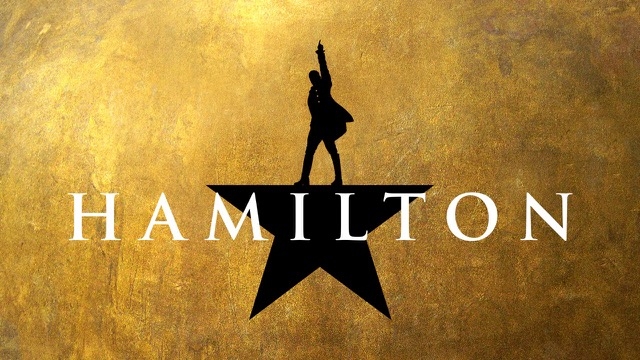
Older generations serve immense purpose. They’re our tangible historical connection, telling us stories that liven our History books. We rejoice in their triumphant war tales; we’re terrified that they lived through some of our world’s darkest times. They offer an experienced perspective that is thickly coated in sage wisdom. No matter the lesson imparted, great value is extracted.
While slicing avocados and de-seeding pomegranates for my family’s Thanksgiving guacamole, my Grandfather and I were conversing. He lives in Rochester; I’m stationed in New Jersey. We’re both guilty of letting too much time pass in between speaking. Despite prolonged conversational absence, our mutual respect and love lubricate the dialogue.
We caught up on conventional discussion topics: sports, politics, movies. It felt good to talk; it felt right. He then introduced a subject foreign to our standard discourse: Hip Hop. No, my Grandfather didn’t unveil a “Thug Life” tattoo, but he expressed a newfound appreciation for my preferred genre—an appreciation that I thought started and stopped with me in the Hurwitz family.
He’d recently listened to select songs from Lin-Manuel Miranda’s esteemed broadway show, Hamilton. As an open-minded man who loves music and history, he marveled at Miranda’s incredible storytelling rhyme schemes—composed of lyrical depth and complexity. Suddenly, Hip Hop didn’t adhere to its stereotypical reproach. The common misconception that it solely perpetuates chauvinism, violence and drug use was substituted with high regard. Lin-Manuel Miranda removed the blindfold from my Grandfather’s eyes, allowing him to respect Hip Hop’s intricacies and influence. Suddenly, he was able to view it from my vantage point: as a powerful art form. Whoever coined the phrase “you can’t teach an old dog new tricks” clearly hasn’t met my Grandfather.

It was pretty cool discussing Hip Hop with my Poppa (Hip Poppa?)—a conversation that I never expected to have with an 85-year-old man. His initial curiosity probably derived from wanting to supplement our standard conversations, but that interest gestated into a sincere admiration. I respect that he spent time exploring unfamiliar grounds to deepen our relationship. I’m honored that he cares. I also appreciate Lin-Manuel Miranda for redefining Hip Hop’s boundaries to incorporate a broader audience; for legitimizing the genre that has been unfairly classified as “ignorant.”
My mom asked me to go see Hamilton a year ago. Consistent with my stubborn nature, I disregarded the idea. A show about one of our Founding Fathers? And not even the most popular one? Yeah right. I didn’t really know anything about the play or its genius creator, and assumed it would be a boring History lesson. Ironically, I was committing the exact same crime that I’ve endlessly tried to protect Hip Hop from: ignorance. One-year later, admission prices have sky rocketed, a ticket lottery system has been instituted and Lin-Manuel is no longer attached to the production. Hey, stubbornness—you’re a colossal dick.
It’s easy to see why Hamilton has enjoyed so much success: 16 Tony nominations, with 11 wins, including best musical. Lin-Manuel Miranda adapted the 2004 biography, Alexander Hamilton, into the rapping tale of the Founding Father’s difficult life and incessant work ethic that molded his grand stature. The play serves as a biographic homage to Hamilton, but also represents everything that he fought for throughout his life and assembly of our country: The American Dream.
The title track, “Hamilton,” details Alexander’s trying adolescence that equipped him with the survival tools, perseverance and vision to progressively mold America. The fatherless, impoverished son of a whore mother, was born into reprehensible circumstances experienced by some, but survived by few. He conquered his poorly dealt cards through an unrivaled ambition, which lead to a Colombia education in his transplant home, New York. The rest is history. Hamilton helped establish America’s government through his role in the 1787 Constitutional Convention; he lobbied for slavery’s abolishment; he’s the face of the $10 bill. From being cash poor to representing a nomenclature of US currency, Alexander Hamilton conquered the American Dream.
Lin-Manuel Miranda did the unthinkable: he made old White folks appreciate Hip Hop—a task I’ve tried to accomplish since I first heard Slim Shady. He took people’s largely uninformed Rap disdain and converted it into an appreciation; into a respect. My Poppa now better understands my Hip Hop obsession; he better understands Hip Hop’s value. We’ve broadened our common ground. Now, is he going to dive into the depths of Gucci Mane or follow the developing Kanye hospitalization story? Probably not. But can I see him recognizing Kendrick’s merit by decoding his dense To Pimp a Butterfly rhymes? Look, I've seen crazier things happen.
What is Rap at it’s core? It’s poetry; it’s expression; it’s cathartic. It’s an artistic instrument that is fastened to DaVinci’s tool belt as securely as his chisel. Most importantly, it’s finally transcending arbitrary boundaries, and being appreciated for what it’s worth. It’s finally being respected. Thank you, Lin-Manuel Miranda.






